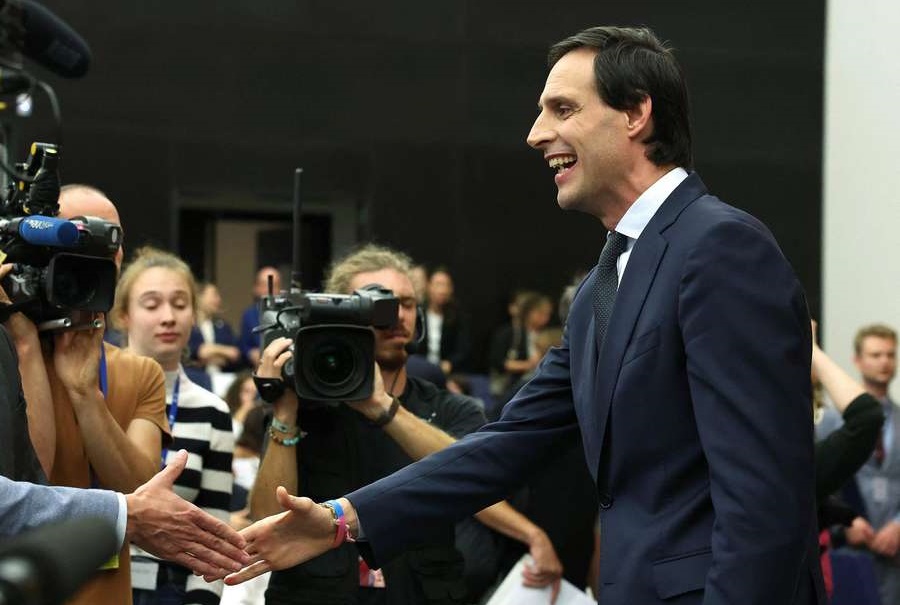11 Dec 2024

Tired Earth
By The Editorial Board

From 2027, Europe will start levying carbon tariffs on goods imported into the EU in order to speed up decarbonisation efforts outside Europe and prevent EU industries from fleeing to countries with lower CO2 pollution costs.
Select products like electricity, steel, cement, aluminium, and fertilisers will be first in line before the scheme is eventually extended to other sectors.
African countries have expressed strong criticisms of the EU scheme, which is the first of its kind across the globe. A note they circulated at the World Trade Organisation (WTO) described it as a “unilateral environmental measure” that risked reducing Africa’s GDP by more than 1% while doing little for the climate.
According to them, CBAM risks “diminishing the prospects for development of developing countries” and would ultimately undermine the Paris Agreement on climate change.
“This undermines trust, upon which multilateral cooperation to address global challenges such as climate change depends,” warned the South African energy ministry. The carbon tariff would put “the burden of climate action onto developing economies”, which was “undue and unjust”, it added.
The rest of the world tends to share Africa’s distaste for CBAM. Brazilian industry association CNI accuses the EU carbon border tariff scheme of having a “protectionist bias”. Argentina’s steel producers said the EU’s carbon border tariff is “not compatible with WTO rules”, a frequent criticism, although WTO officials have reserved their judgement until after it enters into force.
A penalty?
When Climate Commissioner Wopke Hoekstra visited China to meet his counterpart Xie Zhenhua, their talks were dominated by Hoekstra explaining CBAM.
During his trip, Hoekstra was also at pains to tell Chinese business leaders why the carbon tariff was necessary. “You will see that CBAM, regardless of what people try to push for, is not a ‘penalty’ for importers to the EU, but an incentive for decarbonisation,” he explained.
Why then do other countries see CBAM as a “penalty”?
Rich regions like Europe have largely failed to convince the rest of the world to follow suit in their speedy pursuit of carbon neutrality. Burning fossil fuels to pursue affluence like today’s rich countries have done is their right, nations like India and China argue.
The EU is no longer willing to accept that reasoning, which means exporting into the EU will be more complicated – because of new data reporting requirements – and challenging – because goods are subject to the new tariff.
Explaining why CBAM is not a penalty may just become one of his main tasks in Dubai.
“Wherever EU diplomats go these days, they are confronted with officials asking for exemptions from CBAM,” says Giulia Cretti, a research fellow at the Dutch think-tank Clingendael.
“When CBAM was announced and negotiated, the EU made three key mistakes: it didn’t involve third countries in the discussion, revenues are going to the EU budget, and countries feel as if the bloc is imposing its climate agenda on them,” explains Cretti.
Attacking the architect
Another Dutchman may also have a challenging time in Dubai: Mohammed Chahim, a Dutch socialist (S&D) who was the Parliament’s speaker on CBAM.
“I understand why some countries are sceptical about CBAM,” he concedes. But to Chahim, this is a matter of fairness. “What we are doing is putting all companies on equal footing,” the Dutchman adds.
While Europe is creating one scheme, it is abolishing another: Heavy industry will have to foot the bill for its carbon emissions going forward, Chahim points out.
“The overall objective is to stimulate global decarbonisation of heavy industry,” he argues.
Foreign countries, on the other hand, insist on exemptions.
But “there is no room for that in the rules,” says Cretti. “The only way out is for companies to pay the same carbon price at home as the one paid in Europe.”
Sharing the spoils
With little room for exemptions, the EU has one option left to win the confidence of countries affected by CBAM: sharing the spoils.
“One thing the EU can offer countries is to set up a clear mechanism to transfer the CBAM revenues to the countries affected by climate finance,” notes Cretti.
Today, revenues from the carbon tariff go towards decarbonising Europe’s heavy industry, further widening the divide to their third-country competitors.
From 2028, CBAM will cost companies exporting into Europe at least €1.5 billion a year – a figure that will more than quadruple when the mechanism is in full force from 2032.
Will all funds be channelled back to the countries who paid the EU’s carbon tariff? Unlikely.
“The Union is working towards introducing a new own resource based on the revenues generated by the sale of CBAM certificates,” reads the law creating the border tariff. 75% of revenues go to the EU budget, the Commission later clarified.
No mechanism, nor transfer target, is immediately established to transfer the money back to these countries. But some money may make its way back to countries like Mozambique.
“We plan on helping these countries decarbonise their industries by providing technical assistance and increasing the EU’s international climate spending,” insists Chahim.
Source : euractiv.com
Comment